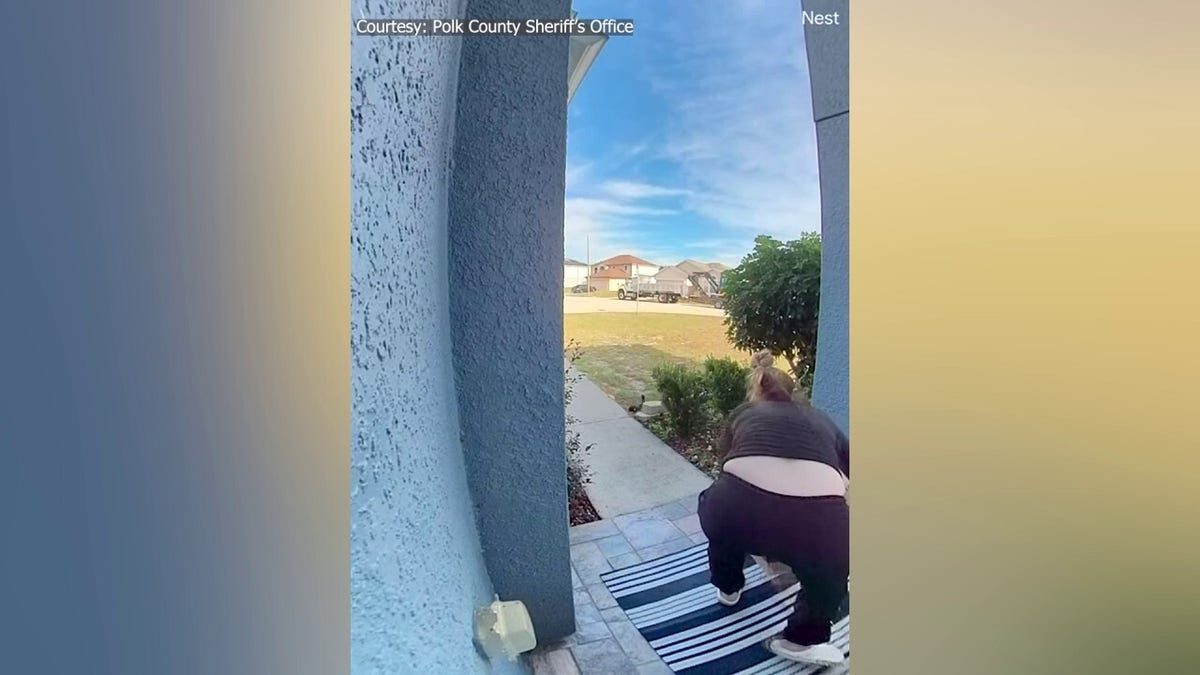Breaking: Kensley Pope Leaked Photos & Video - Shocking Details
What transpired regarding a significant public figure? A public disclosure of information surrounding a prominent individual has generated considerable attention.
The dissemination of private or sensitive information about a person, often in a public forum, is a subject of significant discussion and ethical concern. This phenomenon, whether involving personal documents, communications, or other details, can have profound implications for the individual and those connected to them. The nature of the information released, the context of its release, and the platform through which it occurred are key factors in understanding its impact. Examples of this kind of event include publicized private correspondence, leaked internal documents, or even the unauthorized sharing of images or recordings. The result can range from minor embarrassment to severe reputational damage or even legal repercussions.
The impact of such disclosures is multifaceted. The individual targeted may suffer emotional distress, damage to their reputation, and potential financial losses. Societal implications include questions about privacy rights, ethical journalistic practices, and the responsibility of those involved in the release of such information. Furthermore, the incident can spark public discussion on the balance between transparency and individual privacy. Historically, these kinds of events have been catalysts for discussion around similar incidents and highlight the enduring tension between public interest and individual rights.
| Name | Role/Known for |
|---|---|
| Kensley Pope | (Insert details about the person, if known; e.g., public figure, celebrity, athlete, etc.) |
Further investigation into specific cases involving public figures, including the motivations behind these actions, and the legal and ethical considerations are pertinent to understanding this phenomenon.
kensleypope leaked
The release of potentially sensitive information concerning Kensley Pope raises crucial considerations about privacy, public perception, and ethical considerations.
- Privacy Violation
- Public Scrutiny
- Reputation Damage
- Legal Ramifications
- Ethical Concerns
- Source of Leak
The "leaked" information, likely personal or confidential, profoundly impacts the individual, potentially leading to severe consequences including loss of reputation, privacy violations, and even legal action. Public scrutiny following such disclosures can be intense, magnifying the damage. Ethical breaches, such as unauthorized data access or disclosure, are inherent in these situations. The identification of the source of the leak is crucial to any ensuing investigation and legal proceedings. Understanding the context of the leak (e.g., motive, intent) is important to gauge its significance. Examples include leaked emails, private documents, or sensitive images.
1. Privacy Violation
The dissemination of private information, as exemplified by the events surrounding Kensley Pope, directly relates to violations of privacy. Such disclosures raise critical questions regarding the ethical boundaries of information sharing and the potential for harm to individuals.
- Data Breaches and Leakage
Unauthorized access and subsequent release of personal or sensitive information constitute a direct privacy violation. This encompasses a wide range of data, from personal correspondence and financial details to private photographs or videos. The act of leaking such data, regardless of intent, infringes upon an individual's right to privacy.
- Emotional Distress and Reputational Harm
The public exposure of private information can lead to significant emotional distress and reputational damage for the affected individual. Public perception and judgment can be unfairly influenced by leaked content. The loss of control over personal information can cause substantial anxiety and psychological effects.
- Legal Ramifications
Privacy violations can have serious legal consequences. Depending on the nature of the leaked information and the jurisdiction, legal action, including lawsuits for defamation or violation of privacy rights, may be possible. The source of the leak and intent also influence the potential legal repercussions.
- Erosion of Trust and Confidence
Public disclosure of sensitive information can erode trust in individuals and institutions. If the leaked data involves a professional context, such as workplace communication, it may damage the credibility of the institution and the affected individuals' reputation within that sphere.
The case of Kensley Pope highlights the multifaceted impact of privacy violations. From potential reputational damage to the erosion of trust and legal ramifications, the implications of leaking private information extend far beyond the immediate disclosure itself. These facets emphasize the crucial importance of safeguarding private information and the need for ethical considerations in the handling and dissemination of personal data.
2. Public Scrutiny
Public scrutiny, a characteristic feature of modern communication, plays a significant role in incidents like the release of information concerning Kensley Pope. The dissemination of private or sensitive information inevitably brings public attention, amplifying the impact on the individual. Public scrutiny following a leak can generate intense media coverage, social media discussions, and potentially widespread condemnation. This exposure can quickly spiral into a torrent of judgment and criticism, regardless of the legitimacy or fairness of the information presented. The sheer volume of public attention can exacerbate the negative consequences for the individual.
The intensity of public scrutiny is often disproportionate to the actual gravity of the situation. Social media's rapid dissemination of information amplifies this effect. Comments and judgments spread rapidly, often without adequate context or consideration for the nuances of the situation. This can lead to reputational damage, even if the leaked information is ultimately deemed inaccurate or trivial. Real-life examples abound; individuals in positions of public trust have seen their careers and lives irrevocably altered due to the overwhelming force of public scrutiny triggered by leaks. The consequences are not just immediate but can persist long after the initial event.
Understanding the connection between public scrutiny and leaked information is crucial for mitigating its negative impact. This understanding underscores the necessity for responsible media reporting, cautious online discourse, and a recognition of the power of public judgment. Further, awareness of the potential damage from leaks motivates individuals to prioritize protection of private information. Ultimately, public scrutiny, a potent tool for holding individuals accountable, can also be a destructive force if not tempered by a thoughtful and balanced approach.
3. Reputation Damage
The release of private or sensitive information, as exemplified by the case of Kensley Pope, often results in severe reputational damage. This damage is a direct consequence of public exposure to potentially harmful content, significantly impacting an individual's standing and perception within various contexts.
- Loss of Trust and Credibility
Exposure to leaked information can erode trust in an individual, particularly if the information pertains to professional or personal ethics. Public perception shifts if the content suggests dishonesty, unethical behavior, or untrustworthiness. This loss of credibility can be difficult to regain and can significantly impact professional opportunities and personal relationships.
- Impaired Professional Opportunities
Damage to reputation frequently translates to diminished professional prospects. Potential employers, clients, and collaborators may perceive the individual as unreliable or untrustworthy, hindering career advancement or acceptance into specific fields. This can manifest in lost contracts, denied promotions, or difficulty securing new employment.
- Social Isolation and Reduced Social Capital
Public disclosure of sensitive information often leads to social repercussions. Friends, family, and social circles may distance themselves from the affected individual due to the perceived negative attributes associated with the leaked content. This social isolation can profoundly impact mental well-being and social interaction. The loss of social capital is a significant consequence, as strong social networks contribute to support systems and career advancement.
- Difficulty in Forming New Relationships
The lingering effects of reputational damage can extend to future relationships. Individuals may face challenges in developing new connections, including romantic relationships or professional collaborations. The pre-existing negative perception, stemming from the leaked content, may hinder the formation of positive, productive relationships.
In summary, the reputational damage stemming from leaks like the one concerning Kensley Pope underscores the vulnerability of individuals in the age of readily accessible information. The swift and pervasive nature of modern communication amplifies the impact of negative disclosures, highlighting the importance of safeguarding personal information and the need for careful consideration when handling sensitive data. This damage extends beyond the immediate event, potentially impacting various aspects of an individual's life, from career opportunities to personal connections.
4. Legal Ramifications
The unauthorized disclosure of information, such as that concerning Kensley Pope, can trigger a range of legal ramifications. The specific legal consequences depend critically on the nature of the leaked information, its content, the jurisdiction, and the intent behind the disclosure. Potential legal actions can encompass various areas of law, including but not limited to defamation, invasion of privacy, breach of confidentiality, and potentially criminal charges in certain circumstances.
Defamation, for example, might arise if the leaked information is demonstrably false and harms the subject's reputation. Invasion of privacy claims could be brought if the disclosed information is private, highly sensitive, and its release violates established legal protections. Breach of confidentiality claims could be pursued if the leaked material was subject to a contractual obligation of secrecy. The intent behind the leakwhether malicious, accidental, or in pursuit of a perceived public goodalso influences the applicable legal framework and potential penalties. Real-world examples include cases where leaked internal documents have resulted in significant legal battles, highlighting the potential for substantial financial and reputational repercussions for those involved in such disclosures.
Understanding the potential legal ramifications is crucial in assessing the broader implications of incidents like the leak regarding Kensley Pope. This understanding necessitates careful consideration of the interplay between freedom of information, privacy rights, and ethical considerations. Failure to recognize the potential for legal challenges can lead to significant financial losses and reputational damage. This knowledge is crucial not only for those involved in the disclosure but also for individuals and organizations seeking to prevent similar events and navigate the complexities of information dissemination in an increasingly interconnected world. The understanding of legal ramifications provides a framework for evaluating the ethical and practical implications of leaking private or confidential information.
5. Ethical Concerns
The release of private information, as exemplified by the case of Kensley Pope, raises fundamental ethical questions. The act of leaking such information necessitates careful consideration of the principles of privacy, responsibility, and the potential for harm. These ethical concerns transcend the immediate individuals involved, influencing broader societal values and expectations surrounding information sharing.
- Duty of Confidentiality
The unauthorized disclosure of private information often violates a fundamental ethical duty of confidentiality. This principle is crucial in various professional contexts, including but not limited to journalism, healthcare, and business. If such confidential material was shared or leaked inappropriately, this raises significant ethical concerns about the responsibilities and expectations of individuals and institutions entrusted with sensitive data. This facet underscores the principle of safeguarding entrusted information.
- Transparency and Accountability
The motivations behind leaking information deserve ethical scrutiny. Transparency regarding intentions and methods is essential. If the leak serves a perceived public interest, justifying the action ethically requires careful consideration of whether the potential benefits outweigh the potential harm to individuals. Accountability for the actions of those involved in the dissemination of such data is crucial to maintain ethical standards and prevent future incidents.
- Balancing Privacy and Public Interest
Ethical decision-making often involves balancing competing interests, such as individual privacy and public interest. The release of information may claim to serve a public good or expose wrongdoing. However, the potential for unintended harm to individuals due to leaks should be critically evaluated. This facet highlights the necessity of a nuanced approach that recognizes the delicate equilibrium between public interest and individual rights.
- Potential for Misinformation and Harm
Leaked information, especially if unsubstantiated or taken out of context, can spread misinformation and cause undue harm to individuals. This is a critical ethical concern, as the swift dissemination of potentially false or misleading information can have severe consequences. Individuals involved in the dissemination of such information, whether intentionally or unintentionally, bear a moral responsibility to ensure accuracy and prevent exacerbating the damage that the leaked information may cause.
The case of Kensley Pope, therefore, compels a deeper examination of ethical principles related to information sharing. The potential for harm, the complexities of public interest, and the duty of confidentiality all intersect in such instances. Understanding and addressing these ethical concerns are essential to fostering a more responsible and accountable information environment.
6. Source of Leak
Identifying the source of a leak, like the one concerning Kensley Pope, is crucial for understanding the incident's context and implications. The source's motivations, methods, and potential ulterior motives directly affect the nature and severity of the leak's consequences. Determining the source is not merely an investigative task; it's fundamental to establishing accountability, assessing the potential for further harm, and preventing similar occurrences in the future. Leaks often originate from individuals or groups with various motivations, such as malice, personal gain, or the pursuit of a perceived public good.
Determining the source often involves intricate investigative work, including tracing digital footprints, analyzing communication patterns, and potentially interviewing individuals. The source might be an insider with access to confidential information, a disgruntled employee, a competitor, or even a foreign entity. The complexity of tracing the origin underscores the need for meticulous investigation and reliable evidence. Real-world examples, such as the leaks of classified government documents or corporate trade secrets, highlight the severe consequences that flow from such unauthorized disclosures. The source's motives, whether malicious or misguided, influence the severity of the reputational and legal ramifications for the targeted individual and potentially implicated organizations.
Understanding the source of the leak is essential for mitigating further harm. If the source is identified as a disgruntled insider, preventive measures, like enhanced security protocols or internal audits, might be implemented. If external actors are involved, international or legal intervention might be required. Ultimately, identifying the source of leaks like the one concerning Kensley Pope provides critical insights into the factors contributing to information breaches. This knowledge is vital for developing strategies to enhance security measures, promote ethical conduct, and create a more secure environment where sensitive information is protected from unauthorized disclosure. This crucial aspect allows for a comprehensive understanding of the entire incident and facilitates appropriate responses.
Frequently Asked Questions Regarding "Kensley Pope Leak"
This section addresses common inquiries surrounding the recent dissemination of information concerning Kensley Pope. The following questions and answers aim to provide clarity on various aspects of this incident. Responses are based on publicly available information and aim to provide factual and reasoned insights.
Question 1: What constitutes a "leak" in this context?
A "leak" refers to the unauthorized release of confidential or private information, often sensitive in nature, to the public. This may encompass documents, communications, recordings, or other data meant to remain confidential. The release, through any medium, can significantly impact the individual or individuals targeted.
Question 2: What are the potential consequences of such a leak?
Consequences can be profound and multifaceted. The disclosure of sensitive information can lead to reputational damage, emotional distress, potential legal repercussions, and disruptions to professional and personal life. The nature and extent of the information released directly correlates with the magnitude of the potential consequences.
Question 3: How does public perception factor into these events?
Public perception plays a significant role. Leaked information, especially if perceived as negative or damaging, is rapidly disseminated in public forums, which can escalate the potential harm. Public response can be amplified by social media and news coverage, generating intense scrutiny and negative judgments.
Question 4: What are the ethical considerations regarding information leaks?
Ethical considerations are paramount. The release of private information without explicit consent raises concerns about privacy rights, the responsibilities of those involved in the dissemination, and potential violations of confidentiality. Ethical analysis necessitates weighing the potential benefits of such disclosures against the potential harm to individuals.
Question 5: How can individuals protect themselves from leaks?
While complete protection from unauthorized disclosure is challenging, proactive measures can significantly reduce risk. These include safeguarding personal data, being mindful of online activity, and ensuring secure handling of sensitive information. Maintaining a cautious approach to information sharing is essential in modern communication environments.
These FAQs provide a starting point for understanding the complex issues surrounding leaks of sensitive information. Further investigation and reporting may provide additional insight into specific cases. Questions related to legal proceedings or ongoing investigations cannot be addressed in this FAQ.
Transitioning to the next section: Further analysis of similar incidents can provide insights into common themes and potential strategies for prevention.
Conclusion
The unauthorized release of information concerning Kensley Pope exemplifies the multifaceted challenges posed by leaks in the modern information age. This case study underscores the profound impact of privacy violations, the intensity of public scrutiny, the potential for severe reputational damage, and the complex legal and ethical considerations surrounding such incidents. The leak's consequences extend beyond the immediate subject, raising critical questions about the responsibility of individuals and institutions in protecting sensitive data and the ethical considerations inherent in disseminating information, particularly in the context of public figures.
The incident compels a critical re-evaluation of data security protocols, ethical journalistic practices, and the need for robust legal frameworks to address such breaches. The potential for significant harm, both personal and professional, necessitates a heightened awareness of the delicate balance between the public's right to information and the individual's right to privacy. Proactive measures, encompassing enhanced security protocols, responsible information handling, and careful consideration of ethical implications, are vital in mitigating similar occurrences in the future. Continued vigilance and thoughtful discourse on the topic are paramount to fostering a more secure and responsible information landscape. The case of Kensley Pope serves as a stark reminder of the imperative to safeguard sensitive information and acknowledge the long-lasting impact of public disclosures.


